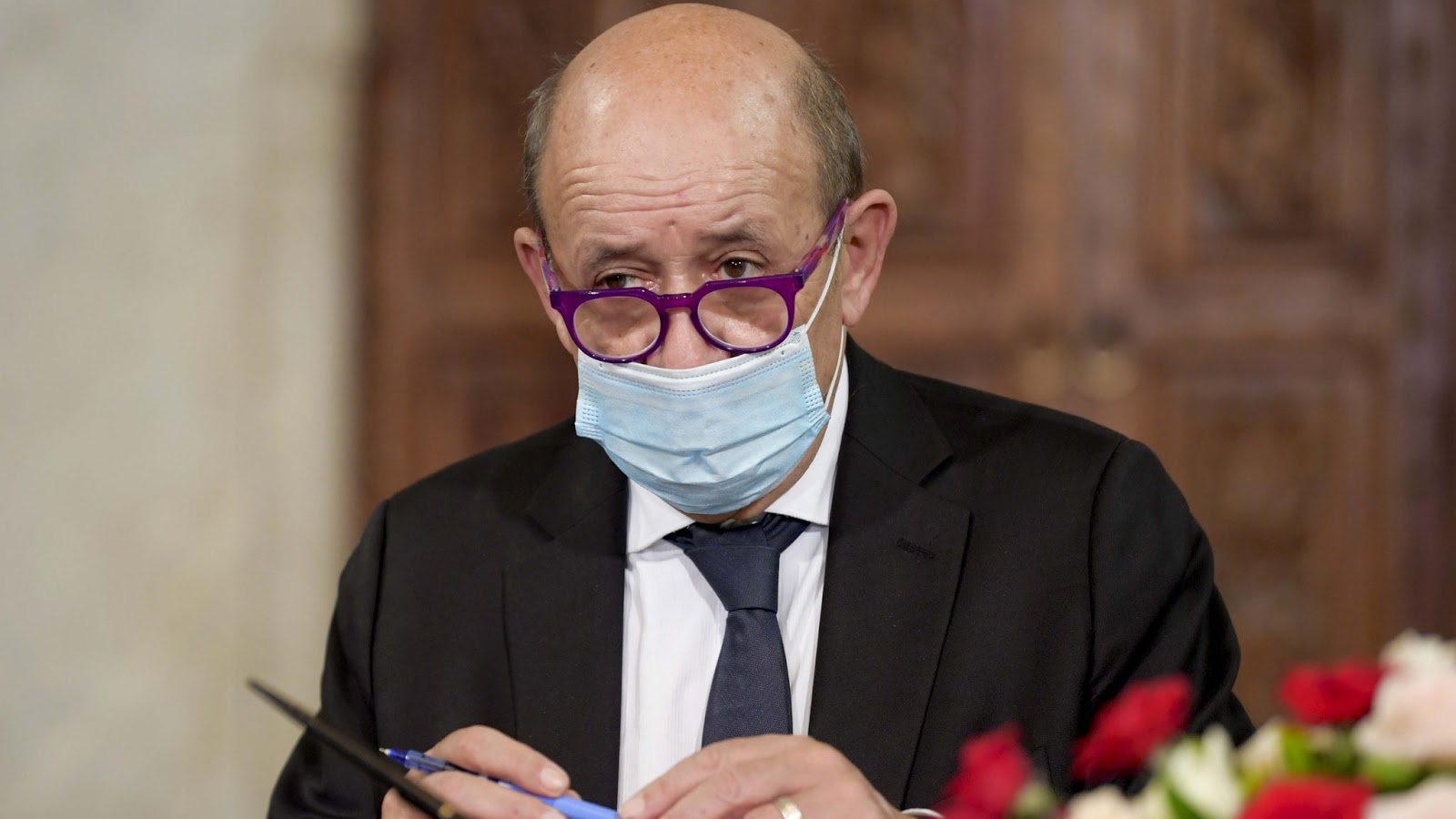By AFP
French Foreign Minister Jean-Yves Le Drian, on a trip to Mali on Monday, ruled out dialogue with jihadists driving an eight-year-old insurgency in the Sahel state.
“Let’s say things very clearly. There are peace accords (with former rebel groups) and there are terror groups which have not signed the peace accords,” the minister said.
“Things are simple,” he added at a press conference in the capital Bamako.
Le Drian arrived in Mali on Sunday, making the first visit by a French politician since young army officers toppled president Ibrahim Boubacar Keita on August 18.
Le Drian told AFP the reason for his visit was to “establish a relationship of trust with the new authorities”.
After international pressure, Mali’s military junta handed over to an interim government which is meant to stage elections within 18 months.
The coup came after waves of anti-government protests partly fuelled by Keita’s failure to end the brutal insurgency.
Conflict has raged in Mali since 2012, and has killed thousands of soldiers and civilians.
Intense fighting has continued despite the presence of French and UN troops, prompting many to argue that dialogue with jihadists is the best way to end the bloodshed.
Le Drian said his position against dialogue was shared by United Nations Security Council and the G5 Sahel countries — a regional anti-jihadist force which includes Mali.
But Mali’s interim prime minister, Moctar Ouane, swiftly disagreed, in a sign of a policy rift between the Sahel state and France, the former colonial power.
‘We can talk’
Ouane told reporters that a forum on Mali’s crisis last year, gathering local leaders, had “very clearly indicated the need for an offer of dialogue.”
Dialogue offered an opportunity “to define the contours of a new governance of spaces,” he said, adding that this would require coordination from Mali’s military partners.
Informal contacts between the new government in Bamako and jihadist groups are apparently already underway.
This month, the government swapped some 200 detainees — many of them thought to be jihadists — for four captives held by Islamist groups, including 75-year-old Sophie Petronin, the last remaining French hostage in the world.
Le Drian’s visit also comes at a time when world leaders appear to be considering the possibility of jihadist talks.
UN Secretary General Antonio Guterres told French daily Le Monde in September “there will be groups with which we can talk, and which will have an interest in engaging in dialogue to become political actors in the future”.
Swathes of Mali, a vast West African nation of some 19 million people, lie outside government control.
France has 5,100 soldiers deployed across the Sahel region as part of its anti-jihadist Operation Barkhane.
The United Nations has some 13,000 troops deployed in Mali as part of its peacekeeping mission, known as MINUSMA.
In this article:
 |
| France’s Foreign Minister Jean Yves Le Drian attends a signing agreement in the Tunisian capital Tunis on October 22, 2020. (Photo by FETHI BELAID / AFP) |
